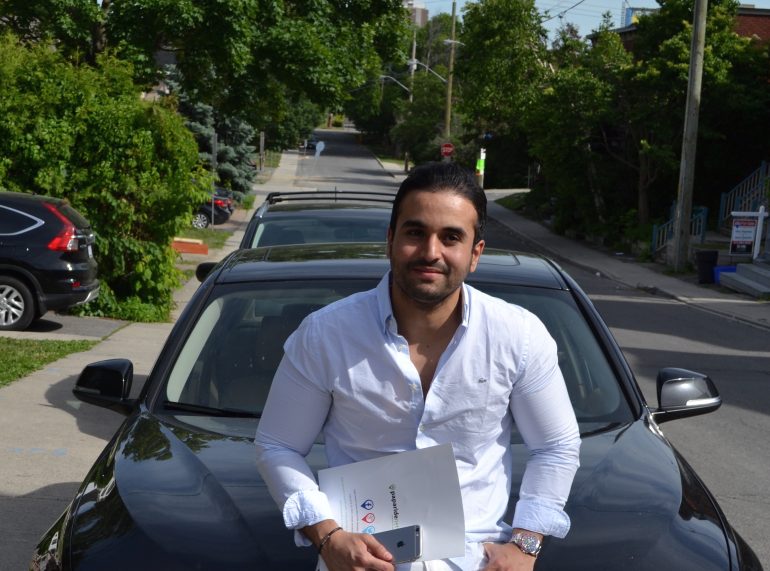Pour lire cet article en français, cliquez ici.
The reign of the car has lasted long enough. For decades, it’s been the means of transportation for a large number of citizens who prefer comfort and speed over public transportation. But the world is warming and becoming depleted by CO2 emissions. As a result, several alternatives have emerged: the return of the bike, investment in subway and bus networks, the development of electric cars, as well as the birth of ridesharing.
It is with this in mind that the Paparide network, based in Montreal, began to take shape in December 2014. “We must be greedy in infrastructures, intelligent in information technology, and optimize existing resources,” said Ayoub Moutiya, co-founder and CEO of the Paparide network.
Four applications make up the system, each offering an alternative to the traditional ‘everyone in their car’ model. Paparide allows users to rent a nearby car from an owner who doesn’t need it, without limiting users to specific parking spaces. Ditto for the PapaBikes bike version.
PaparideShare is a rideshare system where transactions are made by credit card on the app, “which allows more security, a guarantee to the driver that they will be paid, and vice versa,” explained Moutiya.
Finally, PapaPark gives drivers the possibility to rent a parking space in the medium term, from 24 hours to 30 days.
“Having a large number of cars in circulation is a big city issue.”
“Having a large number of cars in circulation is a big city issue,” he continued. “The solutions don’t have a significant impact, because for every dollar invested in public transit, for example, another goes into the construction of new roads. Even in New York, there are more than two million cars in circulation.”
Each of the services offered under the Paparide network acts as a lever to encourage users to integrate them into their daily lives. “There’s a lot of synergy [between applications],” he said. For example, someone who rents their car out on Paparide can also offer their parking space, or someone who is looking for rideshare who cannot find a schedule that suits them may decide to opt for car rental.
While Paparide remains fairly traditional with a physical meeting between the two parties for the exchange of keys, PapaBikes, which also targets companies, is working on the development of an intelligent padlock system that could be downloaded online from the application. “We are working on this technology so that everything is functional next season,” he assured.
One obstacle, however, is blocking the progress of the Paparide application. Although a market study has been commissioned, no insurance company has accepted to cover them, but an intercontinental broker has proposed that the Paparide network create its own insurance company, which it would subsequently be covered under an international company.
The company is in discussion with investors and is waiting for the results of negotiations before launching a crowdfunding campaign on Indiegogo in a few weeks’ time. The team of five employees, including two designers and two programmers, is currently working with a PR agency in Boston to launch their applications across Canada.


